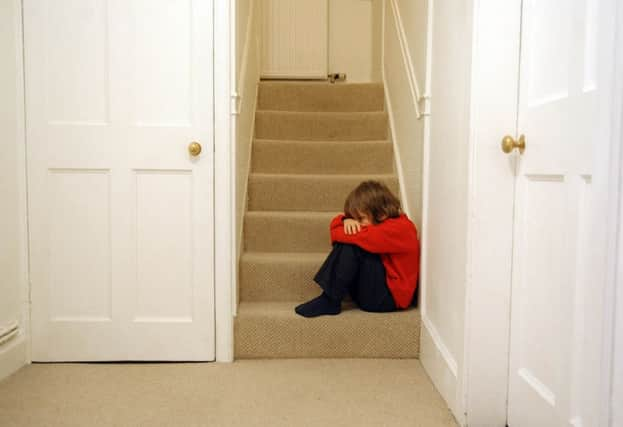Leaders: Bureaucracy won’t protect the vulnerable


The inevitable inquiries usually throw up details of how one or other of the agencies charged with caring for our children – health, education, police and social work – could have done better and communicated better to protect this child.
What we have yet to hear in such circumstances is the argument that another layer of bureaucracy, in addition to these agencies, should have been in place. And yet, after the passing of the latest piece of legislation in the Scottish Parliament yesterday, another layer of bureaucracy is exactly what we are going to get.
Advertisement
Hide AdAdvertisement
Hide AdA “named person” will be allocated to every child in Scotland. When the children are small, it is likely to be a health visitor. When they reach school age, it is likely to be a teacher of some description.
But it is unclear exactly what legislative authority will empower – or, crucially, limit – the actions of this new army of would-be child protectors. This, remember, will be an army that is tens of thousands strong.
It seems astonishing that this has now passed into law without a concrete idea of exactly what these roles will involve, and what rights parents will have to scrutinise the judgments this new system makes about their families.
Advocates of the scheme say these named persons will be a resource whom parents can turn to for advice. Parents may be forgiven for thinking the relationship is weighted somewhat differently. Is there not a risk that mothers and fathers, for fear of having their parenting skills judged harshly by their children’s named person, will actually retreat from contact with officialdom?
Some of the major flaws in this law are acknowledged by its most enthusiastic supporters. Writing in this newspaper today, Ann Houston of Children 1st points out that some children “would like to choose someone they know and trust to be their named person”. If children are to have the chance to choose their own named person, does that not put an intolerable pressure on the child to choose the “right” person to please his or her elders?
Ms Houston also points out that “it is also not clear what happens for children outwith the school day and term times”. Will every child therefore have two named persons, one for school hours and one for the evenings, weekends and school holidays?
We should also ask ourselves a brutal question: can this system guarantee there will be no more children who die as a result of neglect by those who are meant to look after them? The answer – regretfully, tragically – has to be no.
Instead, what needs to happen to give these children the maximum possible protection is that the existing agencies work better and more cohesively, and work with adequate resources.
Ukraine sanctions sign of weakness
Advertisement
Hide AdAdvertisement
Hide AdTHE use of sanctions to apply pressure in international relations has a chequered history. Anti-apartheid campaigners say the cultural and sporting boycotts of South Africa had a profound effect on undermining the authority of the Pretoria regime.
But elsewhere the experience is not so clear-cut. There is now a recognition that United Nations sanctions against Iraq under Saddam Hussein largely served to impoverish ordinary Iraqis while the elite were generally insulated from their effects.
Now that the European Union is considering sanctions against Ukraine, as that country descends ever deeper into conflict, these lessons should be heeded.
The instinct to intervene is a correct one. Anything that can be done to avoid the crisis in Kiev deepening must be supported. And if sanctions can be used in a targeted way to bring pressure to bear on the country’s leaders and their wider families – through the freezing of bank accounts and travel bans, for example – then all well and good.
But a truth rarely acknowledged is that sanctions can sometimes be a sign of international impotence rather than international influence. It may well be that the dynamics of this conflict – and in particular the role of Russia within what is meant to be a sovereign state – may prove impervious to persuasion.
The Kiev government seems intent on allying itself with Moscow rather than Brussels, against the wishes of those who believe greater ties with the EU will bring more prosperity and opportunity.
As the death toll rises and positions become more entrenched, Moscow has to become part of the solution rather than part of the problem.